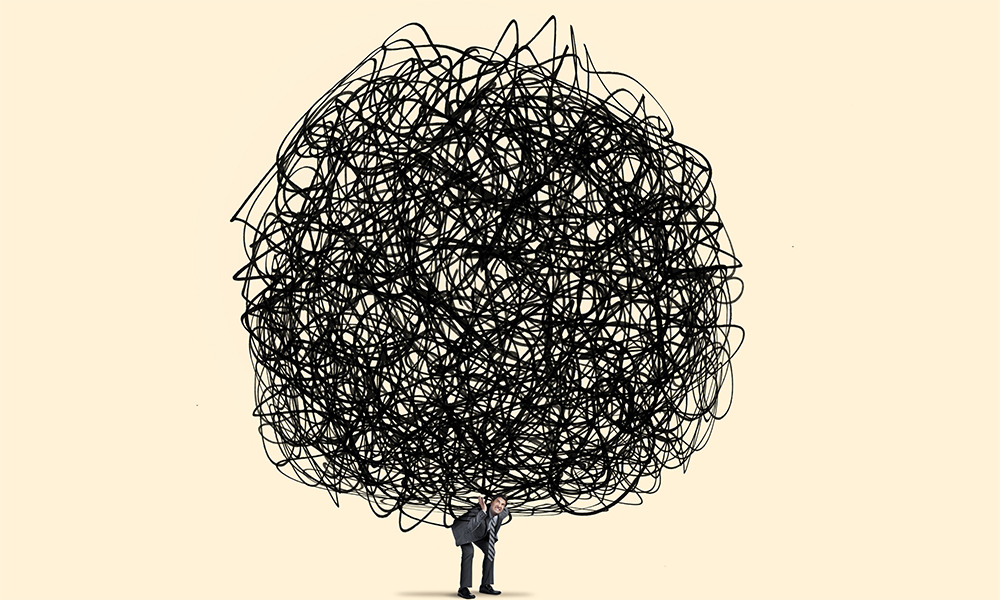You will be hard pressed to find a leader who will say that she is not busy. “Swamped”, “snowed”, “buried” or “slammed” are words that one frequently hears. Busyness has become the badge of honour for leaders.
Most of us constantly complain about having too much to do and too little time. Talking about how busy we are makes us feel self-important and in-demand. Our hectic lifestyle indicates to the world that we are worthy: if you’re not frantically juggling 20 different things at the same time, how successful could you possibly be? In such a work culture, you may find it essential to fill up your plate with all sorts of tasks (regardless of their importance), keen to prove how indispensable you are. In other words, you run the risk of being busy for the sake of being busy.
What makes this truly ironic is that busyness and effectiveness tend to share an inverse relationship. Endless busyness has very real negative effects: your energy is scattered, your brain becomes overworked, you are prone to make mistakes, your communication skills deteriorate, and your stress levels soar. As your days grow more crowded, you actually become less productive and the quality of your work suffers—not to mention your team members and relationships. You delay decision making. You not only let yourself down, but also your team.
So, my message for this week is on how to stop using busyness as an excuse.
As Meredith Fineman puts it in her article, Please Stop Complaining About How Busy You Are:
“To assume that being “busy” (at this point it has totally lost its meaning) is cool, or brag-worthy, or tweetable, is ridiculous. By lobbing these brags, endlessly puffing our shoulders about how “up to my neck” we are, we’re missing out on important connections with… In addition to having entire conversations about how busy we are, we fail to …realize that the “busy” is something that can be put on hold for a little while.”
Here are some suggestions on how not to get caught up in chasing superficial busyness:
1. Respect time
How much do you respect time? And I mean really respect time? Because if you really value and respect your commitments to time, you will find a way around all of this busyness. If you are honest about the impact of your delays and not explain them away, you will start making some tougher choices. But this needs to matter to you. You can’t simply be okay with being busy. That won’t lead to any change. You need to hold yourself and your teams much more accountable on this front.
Our Chairman, Mr. Godrej, is such a great example of punctuality and responsiveness. Meetings with him start on time and usually end early. He replies back to emails very quickly. So, when you are running late for meetings or if you are slow to respond to emails, think about it. If the Chairman of the Group – who probably has a lot more things to worry about – can do it, why can’t you?
2. Focus your energy
Given the endless distractions that surround you, this might seem impossible. Your email pings at you from three different devices, your open-door policy means that anyone can stop by anytime, last-minute meetings keep cropping up… how, in the midst of all this, are you supposed to find and maintain focus? The answer is to separate the essential from the non-essential.
In their article Beware the Busy Manager, Heike Bruch and Sumantra Ghoshal share the findings of a ten-year study involving managers at large companies. Their conclusion is startling: only 10 percent of managers spend their days in a purposeful and reflective manner, the rest end up wasting their time on all kinds of unimportant activities. The secret of the 10 percent is absolute commitment to a few carefully chosen goals—and their refusal to get side-tracked. They aren’t in “reactive mode”, which means they don’t feel it necessary to immediately respond to anything and everything that lands up at their desk, be it an email or a visitor.
Start with smaller steps. For example, while it’s tempting to read an email as soon as you hear that little ping, this habit is one of the biggest disruptors of focus. Switch off notifications or use airplane mode when you’re working on an important project. Set up windows of time to respond to emails. And avoid “meeting drain”. The next time you’re invited to a meeting, check the agenda and ask yourself if your presence and input are actually required—or can you make do with an update afterwards? Make sure your team’s meetings have a clear agenda, a fixed timeline, and the right invitees.
3. Learn to say no
In order to focus your energies, you need to restrict yourself to a few meaningful activities and goals. All too often we think that every opportunity must be seized and every single chance must be taken. This is another result of today’s busyness culture, which fools us into believing that we can have it all. The truth is that we cannot have it all; that only leads to a dilution of our efforts. Instead, we need to be more discerning and prioritise what truly matters to us. Heike Bruch and Sumantra Ghoshal outline a telling example of taking on too much:
“Because distracted managers tend to be shortsighted, they often find themselves overcommitted. They get involved in multiple projects with the best of intentions, but eventually their interest pales, and they wind up either constantly fighting fires or abandoning the projects altogether. In the space of two months, one HR executive we observed enthusiastically took on three enormous projects—redefining the role of the HR department, renewing the 360-degree feedback system, and creating a leadership development program—over and above his everyday job requirements. In the end, he abandoned one project, passed on responsibility for another, and did a poor job on the third.”
Instead of letting things come to such a sorry end, nip in the bud your tendency to overcommit. Next time an opportunity comes along, consider whether you find it meaningful or exciting. If yes, ask yourself if your schedule can handle the extra investment of time and effort. Will your current projects suffer because of it? Will this new project prevent you from doing something else that may be higher on your priority list? Saying “no” to a good opportunity can be hard, but it allows you to say “yes” to the things you truly value.
4. Try the “small drip strategy”
A major derailer is usually the series of smaller, less important tasks that crop up. You can’t ignore them, and they don’t seem to take up too much time, so you tend to stop what you’re doing to accommodate them. The issue with that approach however is that you’re forced to switch on and off from what you’re doing and that distraction can cost you a fair amount of good time. Dorie Clark, in her Harvard Business Review article, 3 Ways to Make Time for the Little Tasks You Never Make Time For, suggests finding small blocks of time in your schedule, up to 15–30 minutes per day, when you can complete these smaller tasks. You can try bunching them together and completing them in these small buckets of down-time.
5. Be maniacal about planning
It may sound trivial, but that’s what it all boils down to – how you plan. Do you have a to-do list for the day? And are the tasks ranked in order of importance? Are you double booking your meeting slots? Do you allow yourself enough time between meetings? Are you spending too much or too little time in your discussions? Are you delegating right? Are you tracking progress effectively? Think through the areas where you have faced challenges over the last few months. You will see the patterns emerging. Tackle them when you plan your schedule for the upcoming week. Along with this, also start setting yourself definite time limits to finish tasks and force yourself to stick to them. It will push you to be more efficient. Try this a couple of times till you find what works best for you.
Getting bogged down by busyness is something that many of us grapple with every day. How we react to this has a significant impact on our productivity, not to mention the culture we are fostering at Godrej. So, instead of simply accepting it as a given, let’s try and find solutions.
I look forward to your thoughts on what we can do differently.








Comments